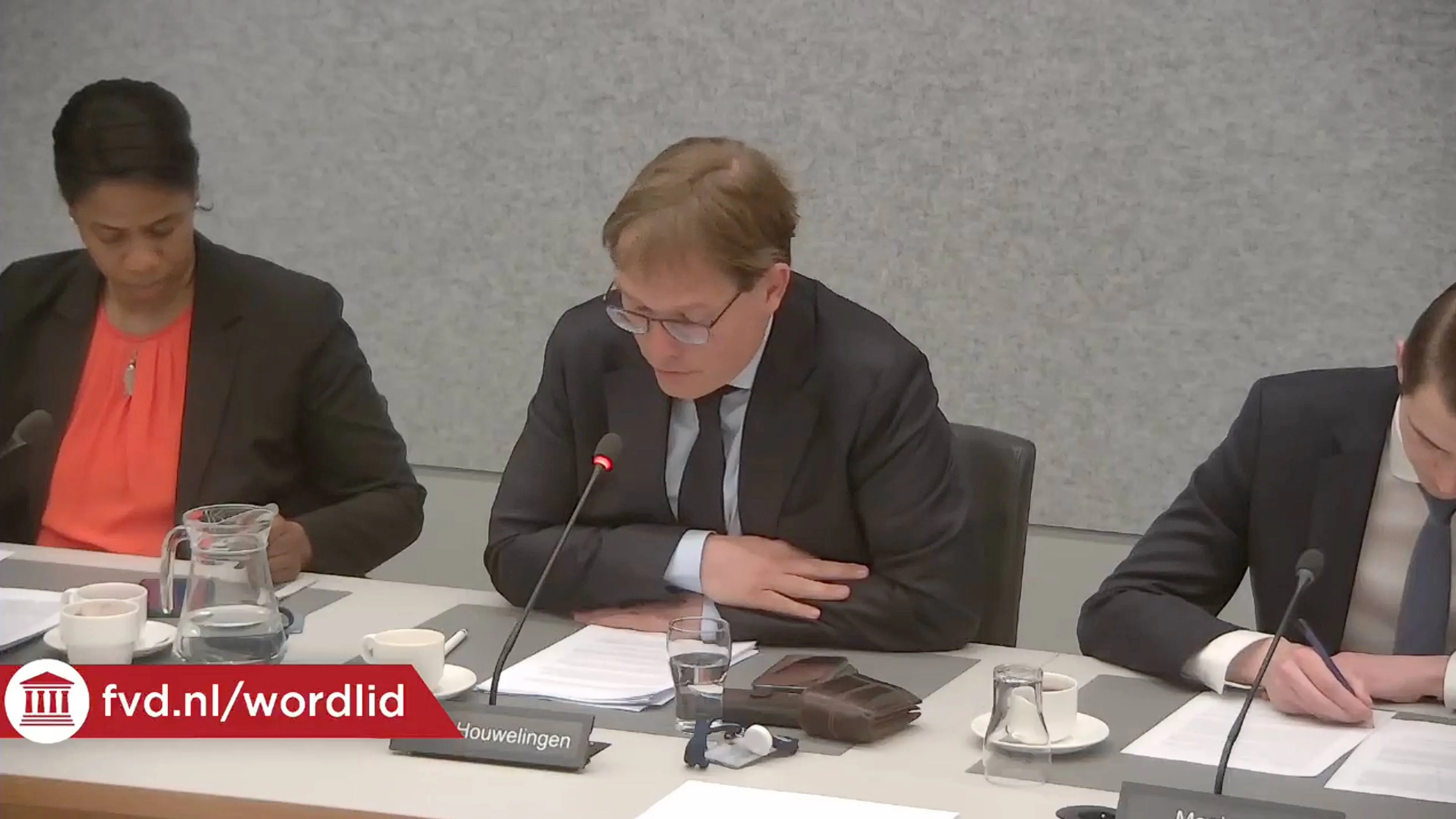Schok! 'The Guardian' schrijft respectvol over klimaatsceptici!
En ziet zelfs positieve elementen in hun kritiek!
De Britse media schrijven nu al enige tijd kritisch over de klimaathype. Populaire kranten als de 'The Telegraph' en 'The Daily Mail' begonnen daar al geruime tijd geleden mee. Kwaliteitsbladen als 'The Economist', 'The Times' en de 'Financial Times' hebben meer recentelijk hun draai gemaakt. 'The Guardian' was traditioneel een fervent apostel van het broeikasevangelie. Wie schetst echter de verbazing nu ook 'The Guardian' een artikel heeft gepubliceerd, dat dit keer geen denigrerende opmerkingen over klimaatsceptici bevat, maar een zakelijke en correcte weergave biedt van hun bezwaren tegen de AGWhypothese (AGW=Anthropogenic Global Warming).
Onder de titel, 'Polite discourse shocker', schreef Bishop Hill (pseudoniem voor Andrew Montford) op zijn blog:
The Guardian has thrown all my preconceptions into disarray by printing an article about sceptics that is not only thoughtful, but is polite too!
'The Guardian':
Sceptics such as Andrew Montford and Anthony Watts agree with the mainstream view that the greenhouse effect brings about atmospheric warming as a result of carbon emissions, but dispute levels of climate sensitivity. .
Het was een reactie van Bishop Hill op een artikel van Warren Pearce in 'The Guardian' onder de titel: 'Are climate sceptics the real champions of the scientific method?'
Voordat ik verdere ga, even voor alle duidelijkheid: ja, dat zijn ze!
Ik citeer:
Since climate change came to prominence in 1988, the role of scientific knowledge especially an idea of scientific consensus has played a starring role in the ensuing academic enquiry/political debate/trench warfare (delete as preferred).
Beyond a depressingly binary characterisation of simply pro or anti-science, I'd argue sceptics cannot simply be written off as anti-science or conspiracy theorists (although I am sure one or two may fall into that category). Rather, they see themselves as upholding the standards of what they'd call "real science".
Many climate sceptics worry climate science cannot be dubbed scientific as it is not falsifiable (as in Popper's demarcation criterion). They claim that while elements of climate science may be testable in the lab, the complexity of interactions and feedback loops, as well as the levels of uncertainty in climate models, are too high to be a useful basis for public policy. The relationship of observations to these models are also a worry for climate sceptics. In particular, the role of climate sensitivity.
As well as their use of models, the quality of observations themselves have been open to criticism; some of which have been attempts to clean up issues deriving from the messiness of data collection in the real world (eg the positioning of weather stations), while others have focused on perceived weaknesses in the proxy methods required to calculate historic temperature data such as cross-sections of polar ice sheets and fossilised tree rings. Such claims are of variable quality, but what unites them is a conviction that data quality in various branches of climate science are below those required by "real science".
This poses the question as to when climate science becomes real science and whether only then it can be used in climate policy making. The next question then is through what process of negotiation that stage could or, indeed, should be reached. ...
Watts found himself under frequent challenge by members of the group on his blog, leading him to post his own experiments on YouTube to disprove their claims. As well as being a nice example of scientific claim and counter-claim on the web, Watts's actions also helped position himself as a "mainstream" sceptic who can challenge key areas of climate science without entering into pseudoscience, a brush he had previously been tarnished with.
Watts's public experiments provide an example of one more area in which sceptics seek to uphold standards, through transparent and auditable scientific practice. One of the most contentious issues arising from Climategate was the effort to withhold from publication data subjected to freedom of information requests. When physicist Phil Moriarty challenged these practices as being outside of accepted scientific standards, he was lauded by numerous commenters on the Bishop Hill sceptic blog as a "real scientist".
While this may mark a new era of extended and unforgiving online peer review, is it also a convenient modus operandi for politically motivated sceptics who can utilise doubt as a weapon against effective implementation of climate policy. Those who favour free market policies over regulation certainly have ample motivation to chip away at climate science if they think it will cast aspersions on the basis for policy.
However, how can criticisms of sceptics as politically motivated be squared with science's commitment to findings always being provisional and open to challenge? At what point can we judge that a scientific question moves from a position of "doubt" to being "settled"?
Both climate change sceptics and advocates of climate policy see this question as important; sharing a faith that scientific evidence is the basis for public policy. However, such a faith omits the possibility that science is not suited to such a role, and that "solving" climate change does not flow linearly from agreement on the science. The attentions of sceptics may or may not be improving the practice and knowledge of climate science. However, if sceptics' never-ending audit is really damaging policy, that may be more a reflection of an overly scientised policy process than a basis for denying them a voice in debate.
The conundrum is that both "sides" (if one can use that term) seem to focus on real science as the arbiter of knowledge claims. In doing so, they risk constricting material policy measures, issues of wider public significance than scientific debates about climate change.
Lees verder hier.
Dat is een raadselachtig slot van een overigens opmerkelijk en doordacht artikel. Wat zou de auteur daarmee nu kunnen hebben bedoeld? Zou het misschien zo kunnen zijn dat hij bedoelt dat het klimaatbeleid niet (uitsluitend) op wetenschap zou dienen te berusten, maar dat de marge van onzekerheid dient te worden overbrugd door toepassing van het voorzorgsbeginsel? Dat is dan postnormale wetenschap.
Maar de middelen waarover wij beschikken om ons in te dekken tegen risico's van allerlei aard zijn beperkt. En in vergelijking met andere risico's is dat van klimaatverandering onbeduidend. Men heeft bijvoorbeeld nog nooit een slachtoffer van (antropogene) opwarming van de aarde kunnen identificeren.
Ja maar, zeggen de AGWers dan, we moeten het klimaatbeleid als een soort verzekeringspremie beschouwen. Dat lijkt op het eerste gezicht plausibel. Maar bij nader inzien is het dat toch niet. Niemand sluit een verzekering af waarvan de premie een veelvoud bedraagt van de mogelijke schade(uitkering) in dit geval voorkoming van schade. En dat is bij het klimaatbeleid duidelijk het geval. De honderden miljarden die daaraan jaarlijks worden uitgegeven wegen in het geheel niet op tegen het effect van de hypothetische tempering van de opwarming van de aarde (die overigens zo'n 16 jaar geleden is gestopt). Want het effect van al het klimaatbeleid, dat wereldwijd wordt gevoerd, is 0,0!
Het zijn niet de klimaatsceptici die dat hebben berekend, maar de mainstream klimatologen. Waarom weten de politiek en het publiek dat dan niet? Dat valt nu eenmaal onder de omerta van de mainstream.
De Britse media maken nu massaal hun draai. Wanneer zou deze ontwikkeling nu naar Nederland overwaaien?
Voor mijn eerdere DDS-bijdragen, zie hier.
Ga verder met lezen
Dit vind je misschien ook leuk
Laat mensen jouw mening weten


